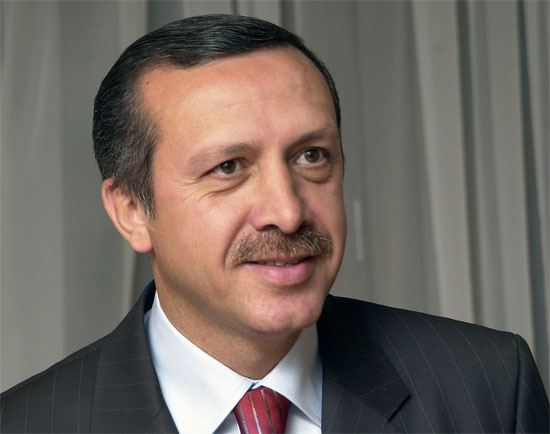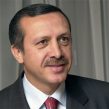
Erdogan Initiates Debate over Turkey Minority Rights
Publication: Eurasia Daily Monitor Volume: 6 Issue: 101
By:

Turkish Prime Minister Recep Tayyip Erdogan during a speech in the northwestern city of Duzce criticized the deep fear of foreign nationals and minorities in Turkey. Erdogan stated: "Over many years, suspicions toward foreigners existed in this country. This mindset has seemingly not changed. They have chased members of various ethnic groups out of this country. Have we won? We should think about this. Actually, this was a result of a fascist mentality" (Sabah, May 23).
Erdogan made this statement in response to the criticism over the AKP government’s policy of seeking foreign investment within the predominantly Kurdish region. It plans to lease a large area of land along the Syrian-Turkish border, which was filled with landmines during the 1950’s. The government is considering awarding the tender to an Israeli firm to clear the area and open it for organic farming. Meanwhile, the Turkish Chief of the General Staff Army-General Ilker Basbug, stated that NATO’s Maintenance and Supply Agency (NAMSA) should come to the region to clear the landmines (Vatan, May 22).
It is likely that Erdogan wanted to avoid the minority debate entering the political arena at this stage. However, he intended to show that suspicion toward foreign investment does not serve Turkish interests. Yet, his statement criticizing past misjudgements was provocative enough to trigger a political storm within Ankara. The opposition Republican People’s Party (CHP) leader Deniz Baykal, said "we do not understand what the prime minister meant. In order to seek sympathy from the west, he occasionally makes such remarks, which offends many within the country. Erdogan does not respect the nation. We are not afraid to face our mistakes. However, the first priority of the prime minister is to defend this nation’s interests. For instance, he has not mentioned the problems of Turks whose citizenship was denied by Greek governments" (Radikal, May 26).
The deputy chairman of the CHP Onu Oymen, said it was unjustified to accuse Turkey of being fascist in the past. Parliamentarians from the Nationalist Action Party (MHP) were even harsher in criticizing Erdrogan. Oktay Vural of the MHP commented "I have not seen any prime minister who sells out his country’s history. Does he have any problem with the Treaty of Lausanne, which recognized the basis of the foundation of modern Turkey?" The General-Secretary of the MHP, Cihan Pacaci attacked the proposed renting of Turkish land to an Israeli firm, lending support to the stance of the TSK on the issue (Milliyet, May 25).
Despite fierce criticism from opposition parties, most liberal intellectuals and minorities support Erdogan’s criticism of Turkey’s history. The chairman of the Kurdish Nationalist Democratic Society Party (DTP) Ahmet Turk, agreed with the prime minister’s controversial statement (Anka Haber Ajansi, May 26). Hasan Cemal of Milliyet, shared his views asserting that "deep down, it is the official nationalist policies of the state that forced the minorities in this country to migrate" (Milliyet, May 27). Even Bekir Coskun of Hurriyet, who is a well known and outspoken critic of Erdogan, supported his position over discrimination against minorities (Hurriyet, May 27).
Minority groups within Turkey approved of Erdogan’s statement. Silvio Ovadio, the Turkish Jewish community leader suggested that individuals from all religious denominations welcomed it. The Turkish Jewish community had declined from around 60,000 members at one time to 20,000. Other minority communities have lost even larger numbers than that of the Jewish community (Star, May 25). In addition, the Greek press also welcomed Erdogan’s criticism of Ankara’s policies on minorities, though doubting his sincerity (Milliyet, May 26).
It appears that this statement, which has been discussed out of its original context, has raised anxiety among some neo-nationalists, who advocate forcing the remaining minorities out of the country. For instance, the neo-Nationalist television channel, Aydinlik Magaize, and the Workers Party have opposed the continued functioning of some Greek foundations. Thus, Erdogan has touched the nerves of not only neo-nationalist groups, but also some state institutions that use facilities which once belonged to minority groups.
In addition, the very existence of Turkish nationalist discourse was established based on the idea that it was justified. Consequently, the Turkish public tends to be immune from such criticism. Erdogan’s statement may serve the economic interests of some influential political actors including the military, and equally it might provoke a revisionist trend in assessing Turkish history.




